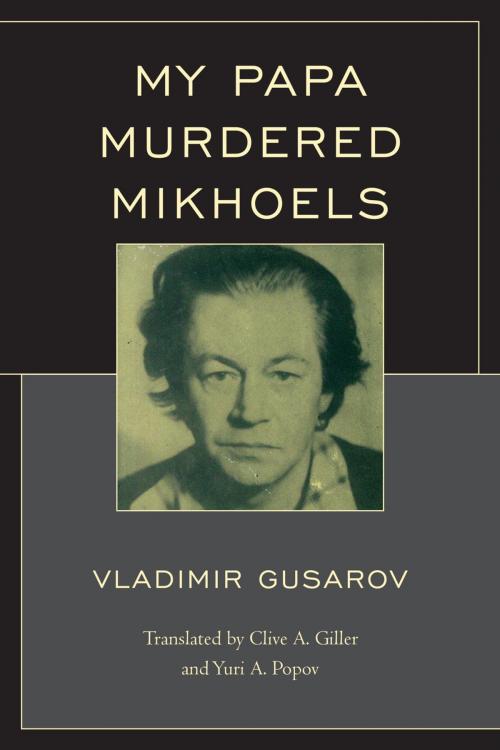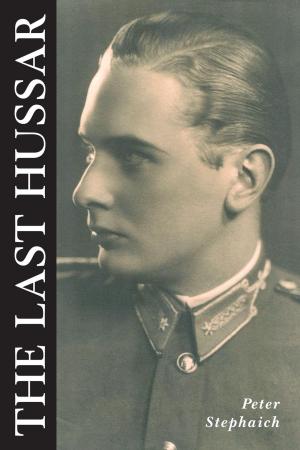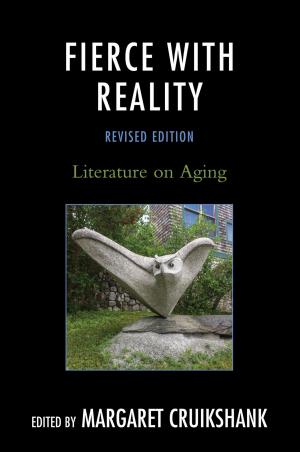| Author: | Vladimir Gusarov | ISBN: | 9780761865353 |
| Publisher: | Hamilton Books | Publication: | May 5, 2015 |
| Imprint: | Hamilton Books | Language: | English |
| Author: | Vladimir Gusarov |
| ISBN: | 9780761865353 |
| Publisher: | Hamilton Books |
| Publication: | May 5, 2015 |
| Imprint: | Hamilton Books |
| Language: | English |
The author’s father, when he was a senior Communist Party member in Belorussia, could have been implicated in the assassination of Mikhoels, the popular director of the State Jewish Theatre in the Soviet Union. This was carried out on the orders of Stalin in 1948 when Vladimir was twenty three years old. His own life is headed towards the theatre rather than politics—and subsequently, ‘shaming his father’s grey hairs,’ into the Moscow dissident movement. Early years are sheltered and privileged, but a psychotic outburst in a restaurant against the tyranny of Stalinism results in him being incarcerated in the Serbsky Institute of Forensic Psychiatry, where he comes across an aristocratic English spy. Gusarov himself has a keen interest in the West and expresses particular admiration for the British Labour Party as well as the Queen. Further deviations, run-ins with the KGB and Soviet psychiatry pattern a failing stage career. But he does at one point find himself the uneasy star of a film about Soviet railways ordered by Kaganovich. During all this time father, for his own sake as much as that of his son, saves Vladimir from being sent to a labour camp. Perhaps that is what allows him to write with such cynical humour about his slow descent into chaos and oblivion. His accounts of a multitude of encounters with people from all walks of Russian life (including colourful episodes with Voroshilov and Solzhenitsyn—as well as his marriages and wayward sexual adventures) are enormously enriched by the actor’s power of speech recall.
The author’s father, when he was a senior Communist Party member in Belorussia, could have been implicated in the assassination of Mikhoels, the popular director of the State Jewish Theatre in the Soviet Union. This was carried out on the orders of Stalin in 1948 when Vladimir was twenty three years old. His own life is headed towards the theatre rather than politics—and subsequently, ‘shaming his father’s grey hairs,’ into the Moscow dissident movement. Early years are sheltered and privileged, but a psychotic outburst in a restaurant against the tyranny of Stalinism results in him being incarcerated in the Serbsky Institute of Forensic Psychiatry, where he comes across an aristocratic English spy. Gusarov himself has a keen interest in the West and expresses particular admiration for the British Labour Party as well as the Queen. Further deviations, run-ins with the KGB and Soviet psychiatry pattern a failing stage career. But he does at one point find himself the uneasy star of a film about Soviet railways ordered by Kaganovich. During all this time father, for his own sake as much as that of his son, saves Vladimir from being sent to a labour camp. Perhaps that is what allows him to write with such cynical humour about his slow descent into chaos and oblivion. His accounts of a multitude of encounters with people from all walks of Russian life (including colourful episodes with Voroshilov and Solzhenitsyn—as well as his marriages and wayward sexual adventures) are enormously enriched by the actor’s power of speech recall.















